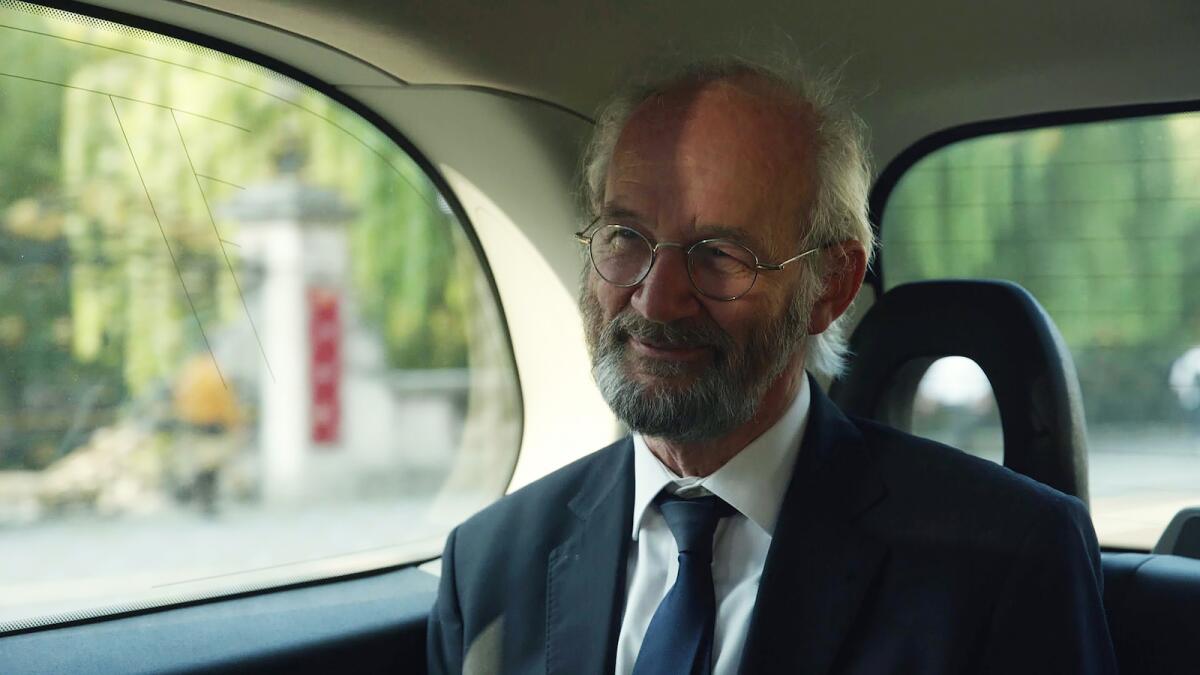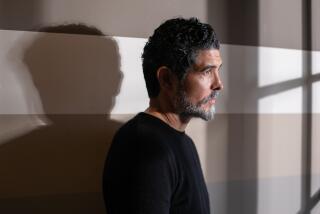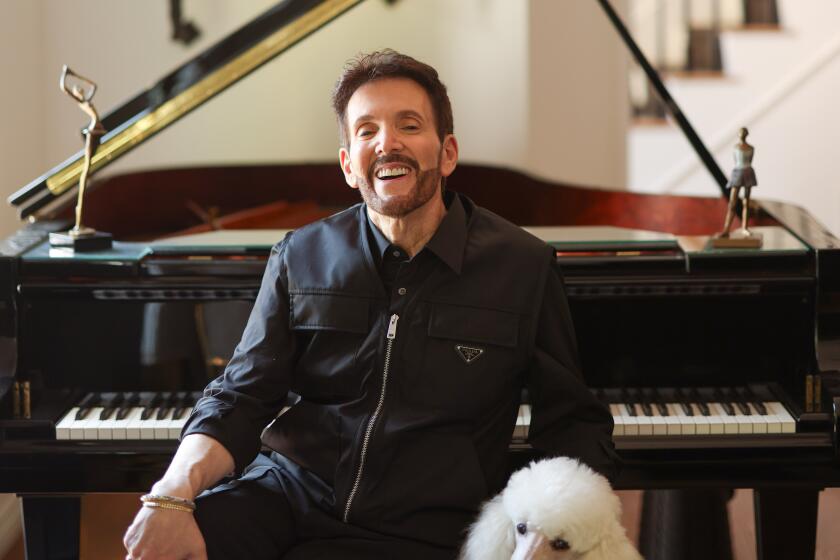Review: The documentary ‘Ithaka’ attempts a difficult defense of Julian Assange

WikiLeaks founder Julian Assange, incarcerated since 2019 in London’s Belmarsh prison, is a polarizing figure in many ways and worthy of debate as to his motives, behavior, tactics and friends. Did he help Donald Trump with the Democratic National Committee email dump to save his own skin? Is he more narcissist hacktivist than thoughtful whistle-blower?
But his being targeted for extradition by the United States, to be tried here for WikiLeaks’ release of Iraq and Afghanistan war records and communications under the Espionage Act — a conviction under which would guarantee maximum security imprisonment for the rest of his life — is something that should chill the blood of journalists everywhere, whether you consider Assange a journalist or not. Simply for being a publisher, his prosecution is a threat to democracy.
For your safety
The Times is committed to reviewing theatrical film releases during the COVID-19 pandemic. Because moviegoing carries risks during this time, we remind readers to follow health and safety guidelines as outlined by the CDC and local health officials.
Needless to say, the unsympathetic make for the powerful’s best-paraded examples in maintaining a climate of control, and when the power is a government, curtailing press freedom is always in its sights. A new documentary, “Ithaka,” directed by Australian filmmaker Ben Lawrence and produced by Assange’s half brother Gabriel Shipton, tests a corollary: Can a defense of Assange, then, be best advocated by sidelining his presence, foregrounding the sympathetic and sticking to the issue at hand?
“Ithaka” focuses on the fight to unshackle Assange from his legal peril through the rallying efforts of his septuagenarian father, John Shipton, and then-fiancée Stella Moris, with whom Assange has two children. (Assange and Moris married last year.) As they bide their time in the U.K. awaiting the London trial that will decide on his extradition status, they travel as needed to get politicians and organizations from other countries on their side while taking part in media coverage that brings its own struggles in separating the personal from the political and rumor from fact.
Shipton and Moris are indeed figures to care about, their lives on an unimaginable edge between worry for a loved one whose health and mental state are frequently reported as precarious and needed strength for their own campaign to find supporters. In particular, Shipton — who resembles his son’s lankiness, soft-spoken tone, brimming intelligence and pale features — tugs at us through the obvious discomfort he feels being a subject of human interest in a fight he wants focused on his son’s plight and the cause of transparency and journalism. Lawrence treads this man-versus-mission issue carefully himself, briefly showing Shipton with a 6-year-old daughter in vérité footage at a friend’s house in the English countryside, but keeping details of Shipton’s family life back in Australia otherwise absent.
Moris, meanwhile, we see taking care of her and Assange’s boys, talking with Assange on the phone (we hear only occasional snippets of a faint voice) and giving interviews that speak to her deep support for Assange’s work and belief that he is a political prisoner whose life is in danger. The subject of psychological torture is addressed in the film by interviewee Nils Melzer, a Swiss lawyer and U.N. human rights expert who points to his own initial skittishness at examining Assange’s case as proof that prejudice regarding character has been an effective tool in quieting help for Assange.
Still, “Ithaka” isn’t as effective an advocacy doc as it could be, sometimes feeling trapped between wanting to intellectualize with onscreen text and contextualized history and looking for observational moments that crystallize the pain and concern for the Assange family. Where Laura Poitras’ flawed but fascinating 2016 film “Risk” admirably struggled with her disillusionment over Assange as a person, “Ithaka” — clearly hoping to be a corrective — has a meandering quality, almost afraid to address controversies that could be argued aren’t as important as what a successful prosecution of Assange ominously portends for journalism. People are complicated, as Shipton rightly pleads at one point, but a more spirited, vigorous defense might have helped lift “Ithaka” from its solemnly reportorial mood.
‘Ithaka’
Not rated
Running time: 1 hour, 46 minutes
Playing: Starts March 3, Alamo Drafthouse Cinema, downtown Los Angeles
More to Read
Only good movies
Get the Indie Focus newsletter, Mark Olsen's weekly guide to the world of cinema.
You may occasionally receive promotional content from the Los Angeles Times.










